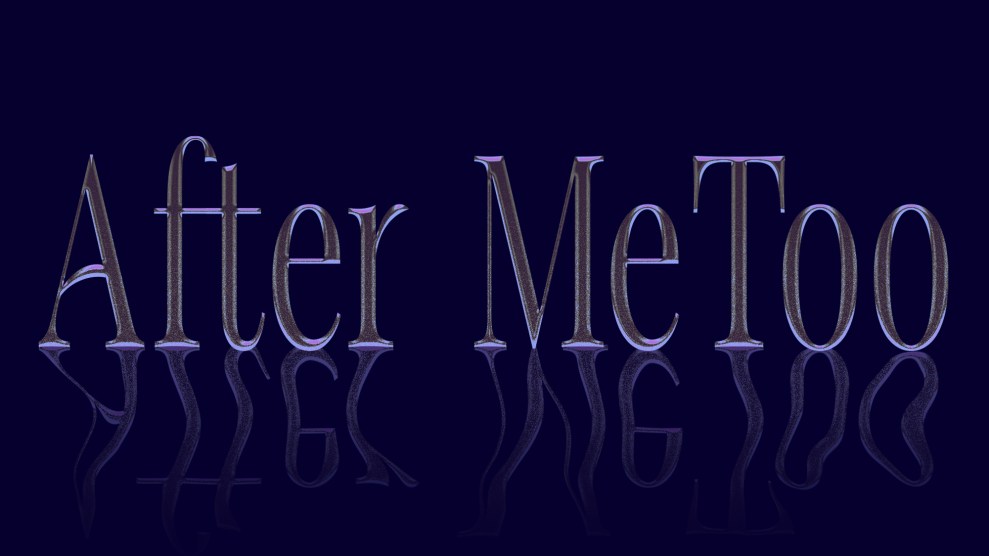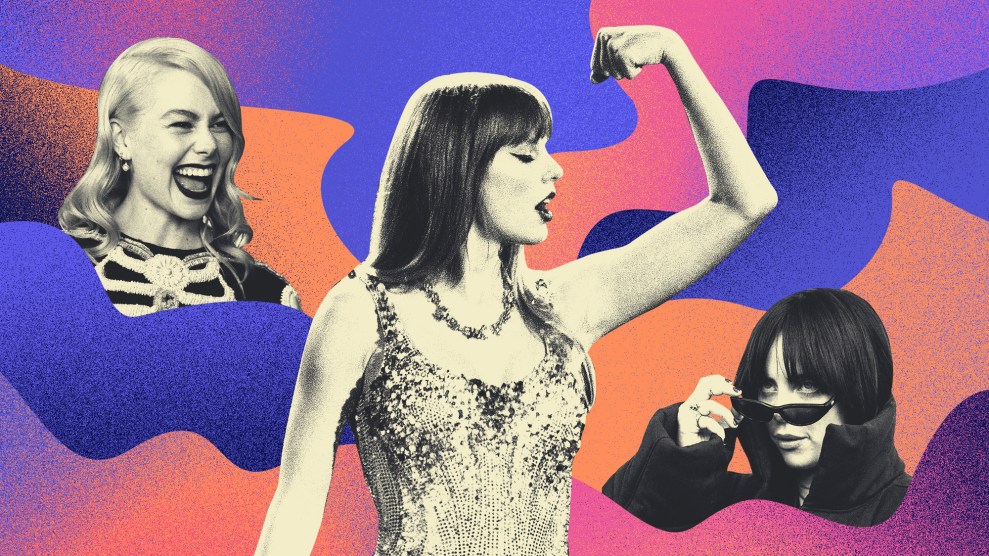
AP/Jeff Widener
Michael Jackson’s alleged sexual misconduct is making headlines once again. On Friday, a California appeals court ruled that lawsuits from accusers Wade Robson and James Safechuck against two Jackson-owned corporations can move forward, overruling their dismissal from a lower court. Robson and Safechuck have alleged that Jackson sexually abused them as children, and in their lawsuits claim that the Jackson corporations should have protected them from the abuse.
Jackson, who died in 2009, had an immeasurable impact on culture and music as the “King of Pop.” His memorial service was viewed by 2.5 billion people globally. He won 15 Grammies and continues to be one of the best-selling musical artists ever—likely having sold upwards of 750 million records worldwide—and had 13 singles reach number one on the Billboard Hot 100. Each astonishing statistic is made up of the millions of people who were impacted by Jackson: his music, his performance, his sheer cultural force.
The revitalization of Robson and Safechuck’s lawsuits reminds us once again that there may have been another side to the King of Pop—a darkness that seems impossible to untangle from the global superstar’s legacy. So what do we do when the artists that mean something to us are accused of terrible things? It’s a difficult thing to process, but we’ve found these can help:
“M.J.,” by Still Processing
In this emotional podcast episode, cultural critics Jenna Wortham and Wesley Morris reflect on their worship of Michael Jackson, the pop icon, and their complicated feelings about him after watching Leaving Neverland, the unsparing 2019 documentary focused on Robson and Safechuck’s allegations about the star. “Our brains know what to do with the music,” Morris says on the show. “But our brains couldn’t figure out what to do with the other stuff.” Though they have no easy answers to offer, hearing Wortham and Morris dissect the limitations of cancel culture—“You can’t just cut problematic people and problematic cultural properties or entities out … that doesn’t eradicate the harm that they’ve done or undo it. And it also doesn’t stop the systems that have allowed them and other people like them to perpetuate these bad behaviors.”— helped open our minds.
“My Woody Allen Problem,” by A.O. Scott
Scott admits early in this essay that it is quite impossible to separate an artist like filmmaker Woody Allen from the art he created, so imbued with his own neuroses and identity. So the question Scott really seeks to answer is whether he can separate the art from himself, a once “impressionable, heterosexual, unathletic adolescent boy” but also now, a critic. Scott also raises the question of what responsibility critics, both professional and casual, have in weighing the morality of an artist against the value of their work.
“Can I Enjoy the Art but Denounce the Artist?” by Roxane Gay
In this essay for Marie Claire, Gay points out that the debate on whether to separate the art from the artist is more than personal—it can come with an actual cost to victims. To Gay, it’s not up to us as consumers to decide whether a legacy has been destroyed by an artist’s terrible acts: “The responsibility for that destruction is his and his alone. We are free to lament it, but not at the expense of his victims.”
Comedian W. Kamau Bell grew up devouring The Cosby Show, the series presided over by the wry Bill Cosby—who, at the time, was “America’s dad,” Bell told an interviewer, “not Black America’s dad, America’s dad.” So how are we supposed to feel when the guy playing that dad is later accused by more than 50 women of egregious crimes? (Cosby’s conviction of aggravated indecent assault was overturned because of a technical error in 2021.) Bell dives into the comic actor’s rise and the reverberations of his tortured legacy, interviewing showbiz veterans, journalists, and victims in his Emmy-nominated documentary series We Need to Talk About Cosby. “I feel like I have to have this discussion,” Bell says on the series. As he told The Daily Show’s Trevor Noah: “You have to talk about all of it because otherwise you lose essential parts of American history.”
Monsters, by Claire Dederer
An expansion of her viral essay “What Do We Do with the Art of Monstrous Men?“, Claire Dederer’s 2023 book Monsters: A Fan’s Dilemma dives deeply into the experience of consuming and making art in the MeToo era. She revisits the masterpieces of men who have done terrible things and also reexamines their crimes, making connections between the propensity for genius and monstrosity as she goes. Monsters is obviously personal—and her willingness to look inward as closely as she examines the art of others is what helps to answer such a seemingly impossible dilemma.
















